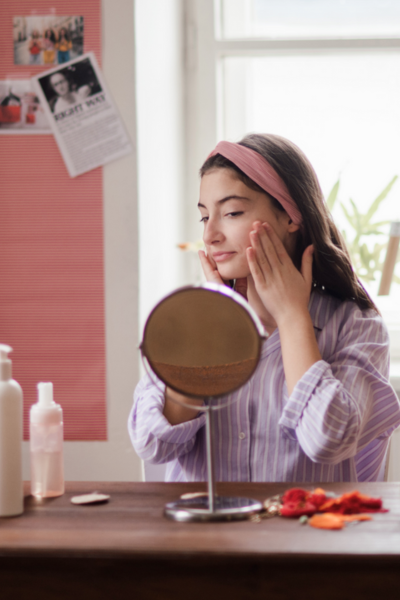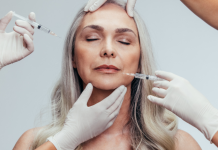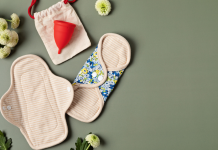 I’m seeing some things lately online that have me all kinds of concerned. Hey mamas, it’s your Friendly Neighborhood Esthetician here, and I’m going to dive right in . . .
I’m seeing some things lately online that have me all kinds of concerned. Hey mamas, it’s your Friendly Neighborhood Esthetician here, and I’m going to dive right in . . .
Young kids, primarily the 10-16 age range, are running full speed to stores like Sephora and Ulta to nab up skincare products that shouldn’t be used on their skin. Think retinoids and alpha/beta hydroxy acids. Why are they doing this? Primarily, trends they’re seeing on social media sites like Instagram, TikTok, and YouTube, and highly effective marketing tactics. This, as the kids say these days, is sus.
No one under the age of 35 needs to use retinol.
So, why shouldn’t young children use skincare products with active ingredients on their skin? The shortest and easiest answer is they don’t need it.
The skin cell growth cycle for young people is around two weeks. They are constantly producing new and shedding old skin cells. This includes children, teens, and early twenty-somethings. As we age, this process slows.
From the mid-20s to mid-30s, the skin turns over every 28-30 days. Every year from 35 and up, that process slows even more. This is where active ingredients come in. Their main purpose is to speed up the cellular turnover process, thus helping with fine lines/wrinkles, uneven pigmentation/tone, and collagen/elastin loss.
Not one of those issues is a concern for a child unless they are prone to breakouts or acne. In which case active ingredients, like salicylic acid or a retinol-type product (RetinA, Tretinoin, Accutane in extreme situations), may be necessary. If your child is dealing with breakouts and acne, I recommend working directly with an esthetician and/or a dermatologist who may prescribe the necessary treatment.
What Are Active Ingredients?
Active ingredients are “any ingredient that provides pharmacological activity or other direct effect in the diagnosis, cure, mitigation, treatment, or prevention of disease, or to affect the structure or any function of the body of man or animal.” — per the FDA.
What About Retinol?
A retinoid is the broader term, which includes all chemical compounds derived from vitamin A. The effects of vitamin A on the skin can be beneficial in several ways, however, there are side effects that can damage the skin. They can and do cause dryness, oversensitivity or burning, redness, photosensitivity, flaking/peeling, and potential blistering when not used correctly. Incorrect use of a retinol-based product can also cause a disruption to the skin’s delicate microbiome, which can lead to breakouts/acne where the skin is overcompensating for oil loss by producing too much. I’ve seen this happen time and again with clients (teenagers and adults alike) who are using a retinol-based topical skincare product incorrectly, or too strong of a percentage.
Building Skincare Routine for Children
I can completely sympathize with any parent who is trying to instill a good skincare routine in their children at a young age. You are likely met with resistance and resentment. I have about eight years or so before I must deal with this with my own kiddo. I am not looking forward to him looking at me like I have eight heads when I try to explain it to him, especially since it’s my literal job.
So, my advice is to have someone else talk to your kids about this, if you can . . . a friend, relative, or a professional. Especially if that someone can personally relate and/or can show them how easy and simple it can be, and which products to use.
What Is Good Skincare for Children?
Just because your kiddo can’t use active ingredients on their skin yet, doesn’t mean skincare can’t be fun or trendy.
The most important steps in their skincare routine, between ages 10-16, are to cleanse (gentle cleanser), hydrate (serum or moisturizer), and protect (moisturizer with SPF 30+) — two to three simple steps.
Occasionally, maybe once a month (if that), throw in a fun mask. If your kiddo is into it, do the mask together for a fun bonding moment! There are several you can make at home, or buy locally, that won’t cause any damage to your child’s skin. Some of my favorites, personally and professionally, are from local skincare companies like Me Time Botanicals and Owl and Lily Apothecary. All their products are safe for any age and skin type, and super fun!
If you are struggling with your kids begging for trendy products, feeling frustrated because you’re not sure what’s what in the skincare world, or just need more specific product recommendations, drop me a note. I’m here to support and help navigate skincare for children. You’re doing a great job, Mama! I’ve got your back!













